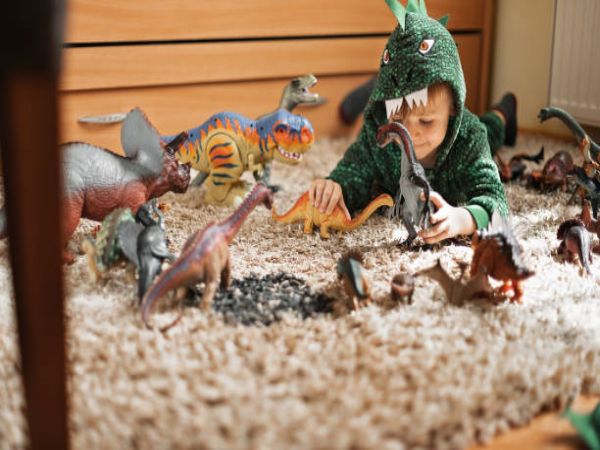1. The Importance of Cleaning and Maintaining Kids Toys
As a parent, you know how important it is to keep your child's toys clean and well-maintained. Not only does regular cleaning help prevent the spread of germs and bacteria, but it also ensures that the toys last longer and remain safe for your child to play with. In this article, we will provide you with some valuable Cleaning and Maintenance Tips for Kids Toys, so you can keep your child's playtime both fun and safe.
2. Cleaning Soft Toys
Soft toys, such as stuffed animals, are often well-loved and carried around by children. However, they can also become a breeding ground for dirt, dust, and allergens. To clean soft toys, start by checking the care label to see if they are machine washable. If they are, place them in a pillowcase or laundry bag to protect them and wash them on a gentle cycle. For toys that cannot be machine washed, spot cleaning with a mild detergent and warm water is usually sufficient.
3. Disinfecting Plastic Toys
Plastic toys, which are commonly found in playrooms and bath time, can easily become dirty and germy. To disinfect plastic toys, you can create a solution of equal parts water and white vinegar. Dip a clean cloth or sponge into the mixture and wipe down the toys, paying special attention to any crevices or hard-to-reach areas. Rinse the toys with water and allow them to air dry completely before giving them back to your child.
4. Cleaning Wooden Toys
Wooden toys are not only durable and long-lasting, but they also add a classic touch to any playroom. To clean wooden toys, use a soft cloth or sponge dampened with mild soapy water. Avoid submerging the toys in water or using harsh chemicals, as they can damage the wood. After cleaning, wipe the toys dry with a clean cloth and allow them to air dry completely before allowing your child to play with them.
5. Maintaining Battery-Operated Toys
Battery-operated toys can be a lot of fun for kids, but they require some extra care and maintenance. To keep these toys in good working condition, always remove the batteries when they are not in use for an extended period. Check the manufacturer's instructions for any specific cleaning recommendations, as some toys may be wipe-clean only. Regularly inspect the battery compartment for any signs of corrosion and clean it with a cotton swab and vinegar if necessary.
6. Cleaning Outdoor Toys
Outdoor toys, such as bicycles, scooters, and sports equipment, can accumulate dirt, mud, and other outdoor debris. To clean these toys, start by removing any loose dirt or debris with a brush or hose. Use a mild detergent and water solution to scrub the toys with a sponge or cloth. Rinse them thoroughly and allow them to air dry before storing them away. Regularly inspect outdoor toys for any signs of wear and tear, and replace any damaged parts to ensure your child's safety.
7. Storing Toys Properly
Proper storage is essential for maintaining the cleanliness and longevity of kids toys. Teach your child the importance of cleaning up and storing their toys after playtime. Use labeled bins or storage containers to keep toys organized and prevent them from getting mixed up or lost. Avoid storing toys in damp or humid areas, as this can promote the growth of mold and mildew. Regularly declutter and rotate toys to keep playtime fresh and exciting for your child.
8. Teaching Kids About Toy Care
Part of maintaining kids toys is teaching your child about the importance of taking care of their belongings. Encourage them to participate in the cleaning and maintenance process by making it a fun and interactive activity. Explain to them why it's important to keep toys clean and how it helps them stay healthy. By instilling these habits early on, you are teaching your child responsibility and the value of taking care of their possessions.
9. Regularly Inspecting for Safety
Regular toy inspections are crucial for ensuring your child's safety. Check toys for loose or broken parts, sharp edges, and any potential choking hazards. Dispose of any toys that are beyond repair or pose a significant risk. Stay informed about product recalls and check the Consumer Product Safety Commission website regularly for any updated safety information.
10. Seeking Professional Help
If you're unsure about how to clean or maintain a specific toy or if a toy requires professional cleaning, don't hesitate to seek help. Some toys may have intricate mechanisms or delicate materials that require special care. Contact the manufacturer or consult a professional toy cleaner for guidance and assistance.

